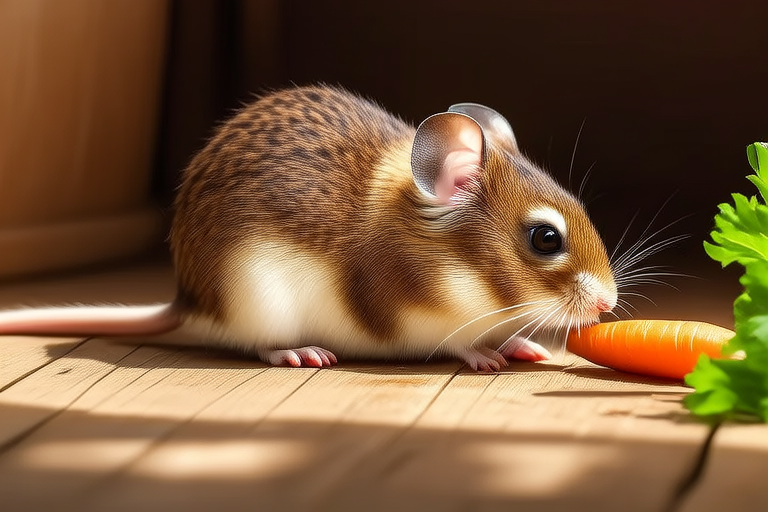From Squeaks to Cuddles: Unveiling the Quirks of Owning a Guinea Pig
Welcome to the delightful world of guinea pigs! These charming, cuddly creatures have been popular pets for centuries, and it’s no wonder why. With their soft fur, gentle demeanor, and amusing antics, guinea pigs can quickly become beloved members of your family. This guide will take you through the ins and outs of owning a guinea pig, from understanding their behavior to providing the best care possible.
Understanding Guinea Pig Behavior
Guinea pigs, also known as cavies, are social animals that thrive on interaction. They are naturally curious and love to explore their surroundings. One of the most endearing traits of guinea pigs is their vocal communication. They make a variety of sounds, from the high-pitched squeal of excitement to the softer purring when they’re content. Each sound can tell you something about their mood or needs.
One of the most fascinating behaviors of guinea pigs is their ability to recognize their owners. They may follow you around the room, nudge you for attention, or even try to climb into your lap. Their loyalty and affection can be heartwarming, making them wonderful companions.
Care Tips for Your Guinea Pig
Owning a guinea pig comes with a set of responsibilities, but it’s all worth it for the joy they bring. Here are some essential care tips to ensure your guinea pig lives a happy and healthy life:
- Living Space: Guinea pigs need ample space to move around. A cage that is at least 7.5 square feet is recommended for one guinea pig, and more space is better if you have multiple. Ensure the cage has solid flooring to prevent injuries and includes plenty of bedding for comfort.
- Hygiene: Regular cleaning of the cage is crucial to maintain hygiene. Remove soiled bedding daily and give the entire cage a thorough clean once a week. Use pet-safe cleaners and always rinse thoroughly to avoid residue.
- Exercise: While their cage provides a safe space, guinea pigs need time outside to exercise. Supervised playtime in a safe, enclosed area allows them to stretch their legs and explore.
- Grooming: Regular grooming helps keep your guinea pig’s coat healthy. Brush their fur weekly to remove loose hair and prevent matting. Trim their nails every few weeks to prevent overgrowth.
Dietary Needs of Guinea Pigs
Proper nutrition is key to keeping your guinea pig healthy. Their diet should consist of hay, fresh vegetables, and a small amount of pellets. Here’s a breakdown of what they need:
- Hay: Unlimited access to Timothy hay is essential. It aids digestion and keeps their teeth healthy by promoting natural wear.
- Fresh Vegetables: Offer a variety of fresh vegetables daily, such as leafy greens, carrots, and bell peppers. Be cautious with certain vegetables like spinach, which can cause calcium buildup.
- Pellets: Provide a small amount of high-quality guinea pig pellets each day. Look for pellets that are fortified with vitamin C, as guinea pigs cannot produce this vitamin themselves.
Water is also crucial; always provide fresh water in a sipper bottle. Check the bottle regularly to ensure it’s functioning correctly and replace the water daily.
Common Health Issues
Like any pet, guinea pigs can face health issues. Early detection and treatment are vital. Some common health problems include:
- Overgrown Teeth: Since guinea pigs’ teeth grow continuously, they can become overgrown if not properly worn down. Signs include drooling, difficulty eating, and weight loss. Regular visits to the vet can help manage this issue.
- Bumblefoot: This condition involves inflammation of the foot pads, often due to poor hygiene or inappropriate flooring. Keep their living area clean and provide proper bedding to prevent this.
- Vitamin C Deficiency: As mentioned earlier, guinea pigs require vitamin C. A deficiency can lead to scurvy, causing lethargy, swollen joints, and poor wound healing. Ensuring a balanced diet rich in vitamin C can prevent this.
Personal Anecdotes: Building a Bond with Your Guinea Pig
My first encounter with a guinea pig was during a visit to a friend’s home. Their guinea pig, named Peanut, was the most loving and playful creature I had ever seen. From that moment, I knew I wanted one too. When I finally brought my own guinea pig, Charlie, home, the initial bonding process was slow but rewarding.
Charlie was shy at first, hiding under his bedding whenever I entered the room. But with patience and gentle encouragement, he gradually became more comfortable around me. He now follows me around the house, nudging my hand for treats. The connection we’ve built is special, and I feel incredibly lucky to share my life with him.
Another owner, Sarah, shared her experience, “When I adopted Lily, she was very timid. However, after a few days of consistent interaction, she started to trust me. Now, she’s the most affectionate guinea pig I know. She loves to sit on my lap and even lets me hold her sometimes.”
Conclusion
Owning a guinea pig is a rewarding experience that offers countless moments of joy and companionship. By understanding their behavior, providing proper care, and addressing potential health issues, you can ensure your guinea pig leads a long, happy life. Whether you’re a first-time owner or a seasoned guinea pig enthusiast, there’s always more to learn about these delightful pets.
So, why not consider adding a guinea pig to your family? With their quirky personalities and loving nature, they are sure to bring endless smiles and cuddles into your home. Happy guinea pig parenting!
